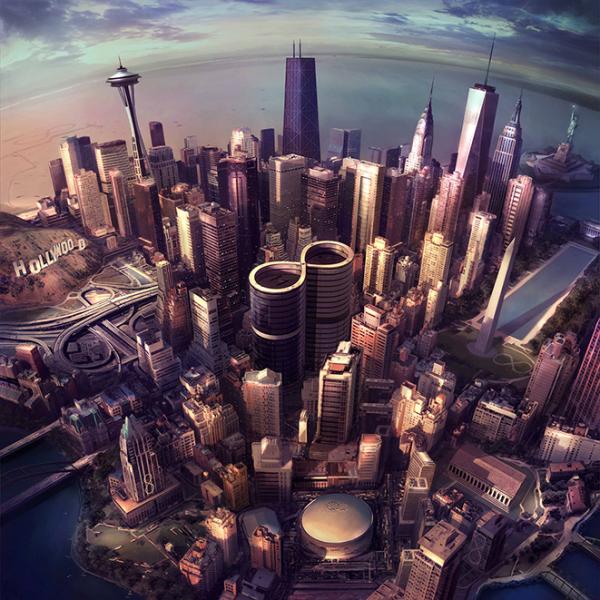'Sonic Highways' By The Foo Fighters: Album Review

This may seem like an obvious statement considering we are well into the second decade of the new millennium, but the overwhelming number of new releases (or announcements of new projects) from nineties alternative heavyweights signaled that maybe – maybe – just a hint of the musical zeitgeist from that most glorious period lingered in today’s pop culture.
However, this could not be: Weezer’s half-hearted invitation for us to go “Back to the Shack” is pathetic compared to Rivers Cuomo’s earnest pleas for affection throughout "Pinkerton"; Primus’ Willy Wonka-inspired album is bizarre (even for Primus) and dissatisfying; and the announcement that the Smashing Pumpkins are recording a doom metal album is beyond disconcerting. Then, of course, there is the disappointment of the Foo Fighter’s eighth studio album, "Sonic Highways."
READ MORE: The Black Keys At The Forum: Show Review
Almost a decade ago, Dave Grohl confessed in an interview for "Kerrang!" that he didn’t “necessarily [want to] be in an alternative rock band from the 1990s for the rest of [his] life,” and although the band has favored of a more generic modern rock sound for the past few albums, none of the band’s releases have been so markedly NOT nineties alt-rock as "Sonic Highways."
Of course, the point of the new album was not to sound like it could have come out in 1996 when the band was still in their twenties and grunge was still (relatively) fresh; rather, with "Sonic Highways," the band wanted to embrace not only their own maturity but also the nation’s musical history.
The recording of the album in eight historically, culturally influential cities – Los Angeles, Chicago, Nashville, Austin, Seattle, Washington D.C., New York, and New Orleans – and the accompanying documentary of the journey, featuring interviews with prominent artists from a variety of backgrounds, is perhaps the greatest celebration of American music culture in recent years.
Unfortunately, despite all this forethought (or maybe overthought), the album is still boring.
When listening to the eight new tracks on this album, it is impossible not to think of songs on previous Foo Fighters releases. Starting mellow with Dave Grohl’s soft singing and escalating slowly into a booming rock song, the lead single from the new album, “Something from Nothing” is practically a more upbeat version of “I Should Have Known” from the Foo’s last album, "Wasting Light." Similarly, “Outside” off the new album follows the same structure as “Bridge Burning” from the previous album, centered on a simple bass melody or motif that remains constant throughout the songs.
The almost country-infused sounds reminiscent of the band’s 2007’s release, "Echoes, Silence, Patience & Grace" also appear throughout the album. Both “Subterranean” and “I am a River” sound as though they belong on the second half of "Echoes," fitting in nicely between “Statues” and “But, Honestly.” Additionally, besides the addition of a trombone, “In the Clear” is remarkably similar to “Wheels” – which has the same aesthetic as their 2007 release although it came out in 2009.
“The Feast and the Famine” also displays a generic (and at this point, uninspired) Foo Fighters formula of fast-paced, blaring guitars with yelled vocals. Even the least typical-Foo Fighters-sounding songs on the album – “Congregation” and “What Did I Do?/God as My Witness” – have a peculiarly familiar classic rock vibe that left me wanting to listen to Boston’s “More Than a Feeling."
In the end, although the thought process behind the album was interesting, the hype and the level of planning dedicated to the HBO documentary and the journey as a whole detract from the quality of the music. Yet, even if "Sonic Highways" is mediocre at best, judging from the band's performances on "Letterman," the Foo Fighters can still rock.
Read more of NT's album reviews here.
Reach Staff Reporter Ashley Hawkins here.



